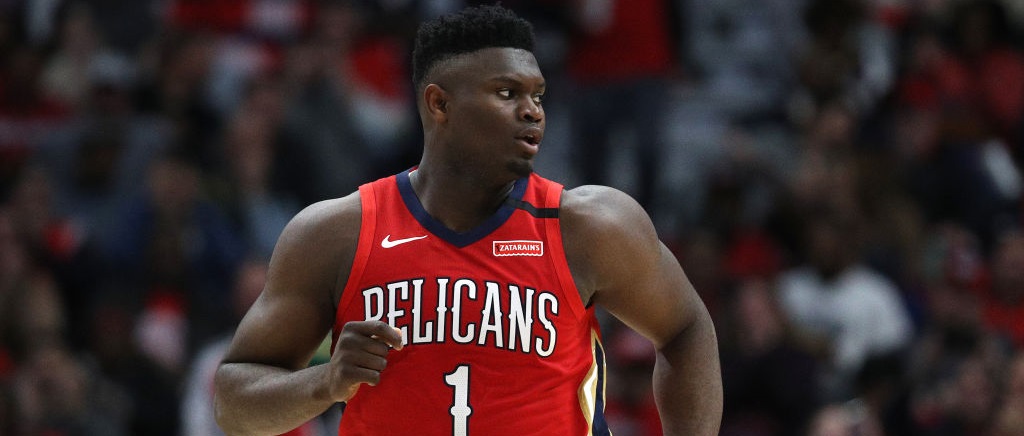Zion Williamson finally began his NBA career on Wednesday and, by the end of the night, it managed to meet all of the hype going into it. Williamson was quiet through the first three quarters of the game until a fourth quarter explosion allowed him to showcase all of his skills in a quick and incredible three minutes of basketball.
The reason why Williamson had started off so slow however had a lot to do with the way the Pelicans chose to play him. Williamson hasn’t played basketball at all since preseason, but the last time he played in a game that mattered was all the way back in March for Duke. It’s been close to 10 months since Williamson last played high level basketball so, of course, the Pelicans are going to bring him along slowly. It was always the plan to ease him in, both to avoid injury but to help him get conditioned to NBA game speed.
The conditioning part has been a hot topic with Williamson for some time, as many believe he needs to lose weight to be at his most effective. He’s a big guy and he had moments in his debut where it looked like he was getting winded towards the end of his bursts of minutes. His quick exit in the first quarter led to ESPN color commentator Mark Jackson commenting on Williamson’s conditioning and weight, a sentiment that he was likely not alone in making. After the game, Adrian Wojnarowski of ESPN talked to Williamson about his conditioning and the criticisms he’s received for it not just as an NBA player, but his entire life.
Full debut night audio of @zionwillamson, Alvin Gentry and David Griffin on The Woj Pod: https://t.co/xKGqG6p2Tm pic.twitter.com/O56nM3VQzd
— Adrian Wojnarowski (@wojespn) January 23, 2020
Woj: I think you’ve dealt with this your whole career from High School and Duke, and now in the NBA. You look different than any other elite star player we’ve seen. Physically, your height, your weight, your body, how you play, it’s different. And there’s not an easy comparable to it. Do you think it takes time for people time to get used to, maybe train their eyes a little bit, whether it’s your playing weight or how you attack. It’s just going to look different with me and that’s what makes me unique.
Zion: Yeah like you said, I’m just unique. I’m one of one. There’s really no comparison to me. I try to add every level to my game. My body is just built different. Some people try to look at it as a weakness, but I look at it as a blessing. People aren’t used to guarding this kind of size and I’m able to add a little finesse to my game so it has flavor and I’m a playmaker so I can create for my teammates and when I have to finish I’m gonna finish.
It’s well put by Williamson. It’s easy to look at him and say that his size could be a problem. The questions about his conditioning, weight, and their relationship to his knee injury have been constant. However, it’s that size that makes Williamson the phenomenon he is. Players built like him don’t move the way he does, jump the way he does, or have the skill in his game that he has. It throws defenses off balance and allows him to exploit them. This doesn’t mean that Williamson’s weight should never be a non-issue, but more that he just needs to be playing at a weight that is both healthy and effective for him. Whether that weight matches what pundits think it should be is inconsequential.
This feeling from Zion is shared by the team he plays for. Executive vice president of basketball operations for the Pelicans, David Griffin, has said in the past that the exact weight isn’t what they care about but instead his flexibility. Does he look good while he moves? Is he comfortable? Is he healthy? Those questions are more important than anything else, including what they see on the scale.







